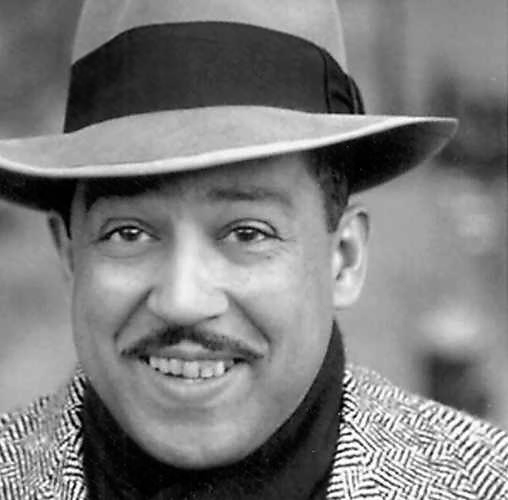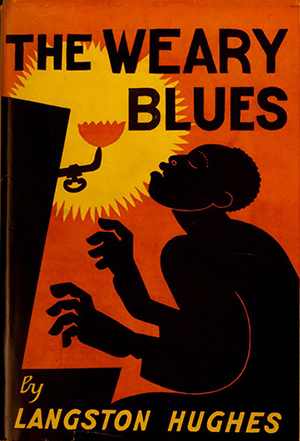Langston Hughes
February 1, 1902 – May 22, 1967
Inducted in 2012
Poetry Collections
The Weary Blues (1926)
Fine Clothes to the Jew (1927)
The Negro Mother and Other Dramatic Recitations (1931)
Dear Lovely Death (1931)
The Dream Keeper and Other Poems (1932)
Scottsboro Limited: Four Poems and a Play (1932)
Let America Be America Again (1938)
Shakespeare in Harlem (1942)
Freedom's Plow (1943)
Fields of Wonder (1947)
One-Way Ticket (1949)
Montage of a Dream Deferred (1951)
Selected Poems of Langston Hughes (1958)
Ask Your Mama: 12 Moods for Jazz (1961)
The Panther and the Lash: Poems of Our Times (1967)
The Collected Poems of Langston Hughes (1994)
Novels and Short Story Collections
Not Without Laughter (1930)
The Ways of White Folks (1934)
Simple Speaks His Mind (1950)
Laughing to Keep from Crying (1952)
Simple Takes a Wife (1953)
Sweet Flypaper of Life (1955)
Simple Stakes a Claim (1957)
Tambourines to Glory (1958)
The Best of Simple (1961)
Simple's Uncle Sam (1965)
Something in Common and Other Stories (1963)
Short Stories of Langston Hughes (1996)
Non-Fiction Books
The Big Sea (1940)
Famous American Negroes (1954)
Famous Negro Music Makers (1955)
I Wonder as I Wander (1956)
A Pictorial History of the Negro in America, with Milton Meltzer (1956)
Famous Negro Heroes of America (1958)
Fight for Freedom: The Story of the NAACP (1962)
Major Plays
Mule Bone, with Zora Neale Hurston (1931)
Mulatto, 1935 (renamed The Barrier, an opera, in 1950)
Troubled Island, with William Grant Still (1936)
Little Ham (1936)
Emperor of Haiti (1936)
Don't You Want to be Free? (1938)
Street Scene, contributed lyrics (1947)
Tambourines to Glory (1956)
Simply Heavenly (1957)
Black Nativity (1961)
Five Plays by Langston Hughes (1963)
Jerico-Jim Crow (1964)
Books for Children
Popo and Fifina, with Arna Bontemps (1932)
The First Book of the Negroes (1952)
The First Book of Jazz (1954)
Marian Anderson: Famous Concert Singer, with Steven C. Tracy (1954)
The First Book of Rhythms (1954)
The First Book of the West Indies (1956)
First Book of Africa (1964)
Black Misery (1969)
Other Writings
The Langston Hughes Reader (1958)
Good Morning Revolution: Uncollected Social Protest Writings by Langston Hughes (1973)
The Collected Works of Langston Hughes (2001)
"My Adventures as a Social Poet" Phylon (1947)
"The Negro Artist and The Racial Mountain" The Nation (1926)









